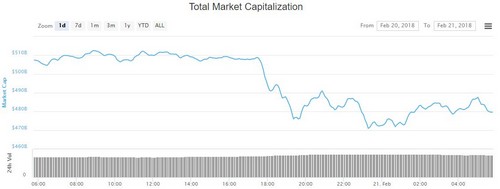The Indian crypto ecosystem has come across a series of shaking events in the recent past which have caused the investors to re-evaluate their decision of investing their hard earned money into the uncertain yet lucrative sector of cryptocurrency. The Indian Government, through RBI, has partially disclosed its mind on the legal prospect of Crypto by proclaiming that the banks shall not provide services to crypto players. The notification by RBI acted as a massive jolt to the fast-growing Crypto market in India.
Before the dust could settle properly, news emerged of the country’s biggest theft of Bitcoins from a well-known crypto exchange i.e., Coinsecure. In the complaint made to cyber crime cell, the exchange alleged a role of its own Chief Strategy Officer in the theft which caused a loss of around 438 bitcoins worth Rs. 19 Crores ($3 million).
Ironically, the purported ground on which the RBI had supported its crackdown on crypto trading was inter alia, consumer protection. And the immediate occurrence of the Coinsecure insider job seemed to have proven the fear of the State about consumer protection, even though the exchange has proposed a repayment plan for the investors who have lost their bitcoins.
The sequence of the aforesaid adversities cultivated a climate of fear in the minds of investors raising serious doubts on the future of cryptocurrency in India more so because of the continued haze on the legal canvas of the country. Above all, it stirred up a debate among the masses about ‘what is the legal recourse?’ on the probable disputes which are inevitable and unavoidable in any ecosystem which involves commercial transactions.
Legal validity of the Contract between Investor and Crypto Exchange
As per the Indian Contract Act, 1872, any contract which is entered into by two competent(Major, Sound mind and not barred by any law to enter into contract) persons (Legal or Natural) out of their free will, for a lawful object, supported by a lawful consideration and not expressly declared void by the law, is a legally valid contract. Since in the case of cryptocurrency services, contracts are formed through electronic means and therefore with a view to validate e-contracts, Section 10A of the Information technology Act, 2000 reinforces the validity of the contracts so made on electronic devices.
When an investor clicks on ‘I accept’ option in the cryptocurrency wallet, he indicates his acceptance to the terms of a contract offered by the service provider/exchange. The cryptocurrency exchanges provide its platform ‘services’ for the buying and selling of cryptocurrencies through mobile applications etc. for which the exchanges charge consideration in the form of transaction fee. Since no law in India prohibits the buying and selling of cryptocurrency, therefore the said investor-exchange contract is a legally valid one as long as it fulfills other essential ingredients of a contract as mentioned above.

What is the Legal Recourse for Deficiency in Service by Crypto Exchanges?
‘Ubi jus ibi remedium’ is a well accepted Latin maxim which connotes that if a person has a legal right for anything, he also has a right to enforce that legal right in a court of law.
A platform service user/investor can file a complaint with the consumer forum under Section 12 of the Consumer Protection Act for any deficiency in service on the part of the crypto currency exchange. ‘Service’ is defined under Section 2 (1) (o) of The Consumer Protection Act, 1986, to mean service of any description which is made available to potential users.
The exchange can be held liable for any ‘deficiency’ in service which is defined under Section 2 (1)(g) of The Consumer Protection Act, 1986, to mean any fault, imperfection, shortcoming or inadequacy in the quality, nature and manner of performance which is required to be maintained by the service provider in pursuance of the contract. On the basis of the value of the claim of compensation filed by the consumer, jurisdiction of District forum (Upto Rs. 20 Lakhs), State Commission (Upto Rs. 1 Crore) and National Commission (Above 1 Crore) can be invoked.
Crypto Trading Businesses have a Remedy of Civil Suit for a breach of the Terms of Contract.
It is how, however,nificant to mention that the dispute arisen in respect of the use of crypto exchange services for commercial purpose, is not maintainable before the consumer forum and the remedy, in such a case, is by way of a Civil Suit. The expression ‘commercial purpose’ is not defined in the Act, however, the Courts in plethora of judgments explained the concept of commercial purpose and if the same is seen in the present context, in order to invoke jurisdiction of consumer forum, the crypto platform user/investor must prove that he is not using the crypto exchange services to carry out a large scale activity of sale and purchase of crypto currency for earning profit.
However, the explanation attached to the definition of “Consumer” carves out a clear exception that the expression ‘Commercial purpose’ does not include the use of services exclusively for the purpose of earning his livelihood by means of self-employment.
Thus, in the present context, the consumer protection law creates a distinction between (1) the crypto buyer, (2) crypto trader using services to earn livea lihood by means of self-employment and (3) a crypto trading business. In case of the 1st two cases, consumer complaint can be filed against the exchange for deficiency in service, whereas, in the 3rd case a remedy of Civil Suit is available for the breach of the terms of contract.


